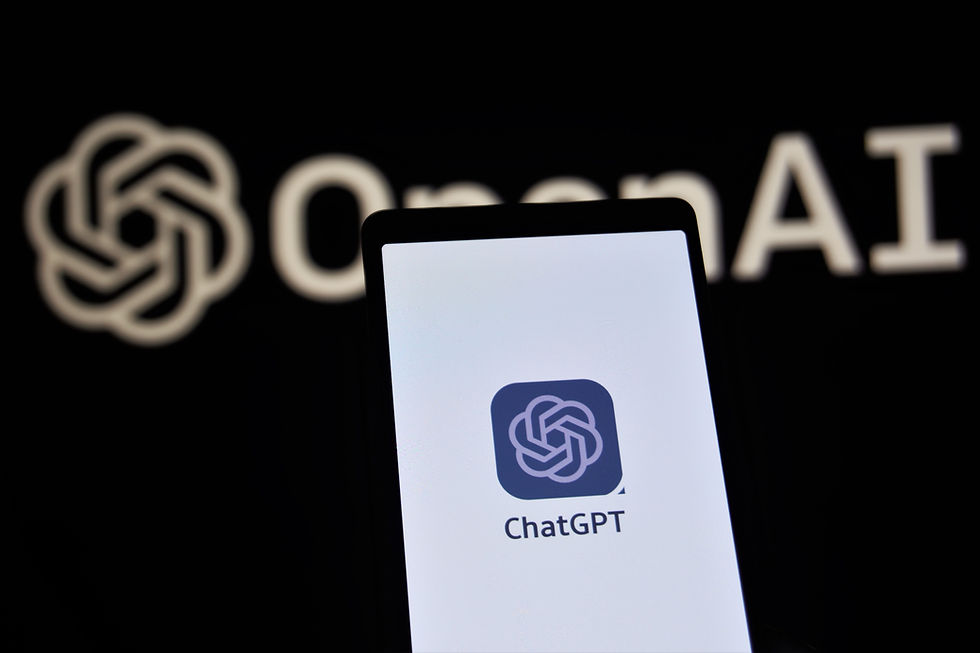AI in Business: Don't Be Left in the Digital Dust
- Matt Symes

- May 7, 2023
- 3 min read
Updated: Aug 17, 2023
Want to stay ahead of the curve? Make sure to dive further into the links we provide to gain the full value.

1. Artificial Intelligence
With a few prompts in ChatGPT, you can write a good first draft or do an environmental scan on just about any topic.
With Perplexity, you can scan academic sources.
With DALL-E, if you can prompt it, it can make an image for you.
With HeyPI, you have a friendly, kind, and supportive companion.
Amplified Intelligence is here to stay. And it is incredibly powerful.
Social Media was created as a way to better connect people. Social Media has now led to an epidemic of loneliness and the polarization of thought (with everyone being fed an echo chamber of their own opinions in an effort to sell you something).
Airbnb was born as a way to find low-cost accommodations for young professionals. It has now led to a housing crisis (unaffordable value) in most major urban centres and a loss of community (replaced by transient tourists).
There are unintended consequences to systemic change and advancement requires forethought
The grandfather of AI, Dr. Geoffrey Hinton, resigned from Google so that he could freely speak about the dangers of AI. In an explosive New York Times piece he said “It is hard to see how you can prevent the bad actors from using it for bad things.”
Even Sam Altman, the founder of OpenAI, has said “It’s crazy not to be a little bit afraid” about the future of AI. Yuval Noah Harari, historian, author of Sapiens, and 2-time Polonsky Prize winner for creativity and originality, has argued that "AI has hacked the basic human operating system and needs to be regulated before it regulates us” (see his Economist Article). Bluntly, it is more powerful, dangerous, and insidious than the nuclear threat.
More than 26,000 people, including Elon Musk and Steve Jobs have called for a pause on the AI arms race so we can figure out how to deal with it.
I understand you can’t put the genie back in the bottle.
But can we mitigate the harm it can do?
2. And Society Needs Guardrails
We’ve done a good job of putting up the guardrails in real life. Think Food, Vehicles, Medication, Aviation, and Infrastructure. All of this allows us to trust society. To enter and interact in the real world with a certain level of predictability.
We have not done the same online.
And we now spend an average of 11 hours and 6 minutes a day on a screen tethered to the virtual world.
Like ‘em or loathe ‘em, guardrails keep us safer from the sharp end of the spear.
And I want to see us find a responsible way to govern the online world for our own health and safety.
Please read Scott Galloway’s commentary: https://www.profgalloway.com/guardrails/
3. How Will You Operate Your Organization in this Environment?
“If you’re a company and you’re sleeping on this, you’re probably going to be out of business.” Ashton Kutcher, partner in Sound Ventures, who has invested more than 240m in AI companies.
Some basic changes, I think, have already happened:
AI creates mistrust and uncertainty - What is reality?
AI creates an opportunity to streamline the mundane.
AI can be an incredible co-pilot for execution in knowledge jobs.
As a leader, you will be forced to take a stance, incorporate the power of AI, and create clarity for your customers how you are going about that.
Have you considered what it will change in your world?
Have you considered how this will affect your customers, your capabilities, and your colleagues?
Clarity on how you will play the game becomes critical now.
PS - If you want to dive further into important insights and strategies for pushing through growth challenges and scaling up your organization, check out the latest Racki & Symes podcast.











